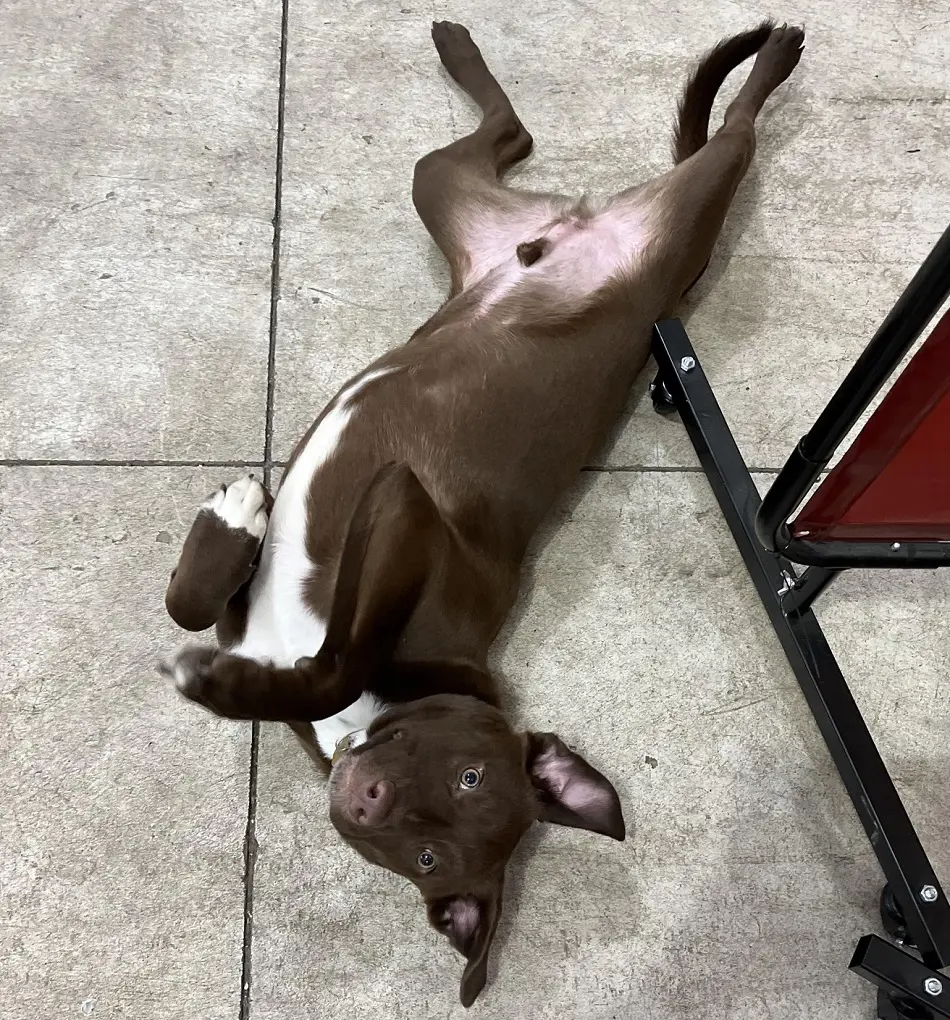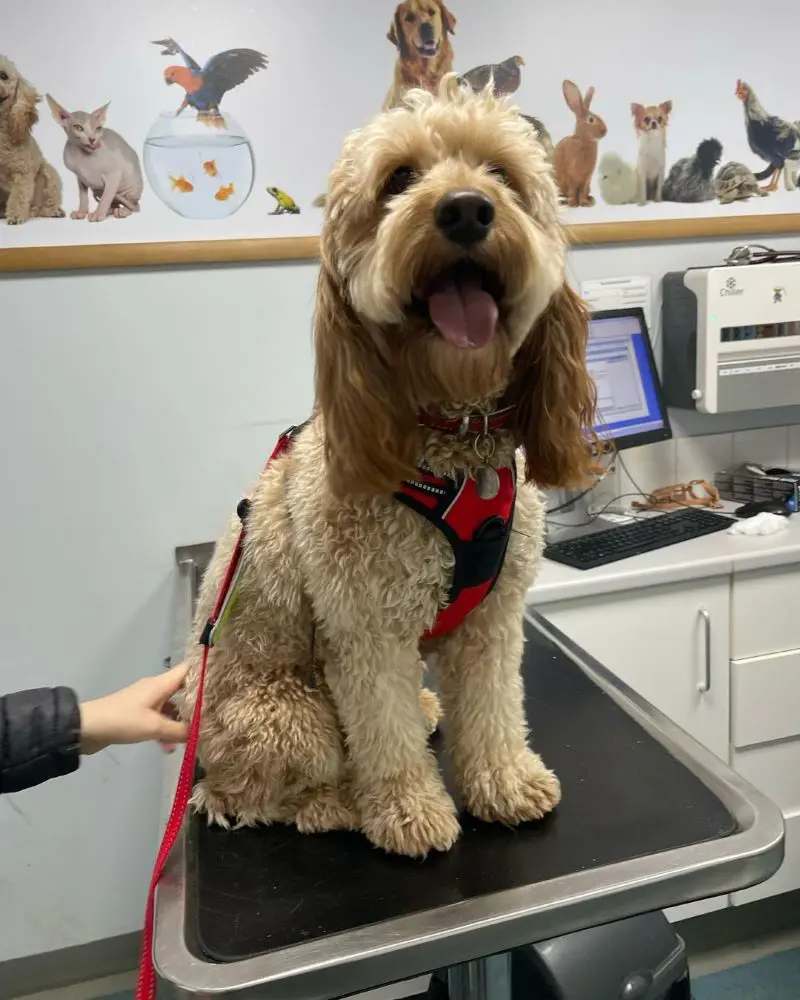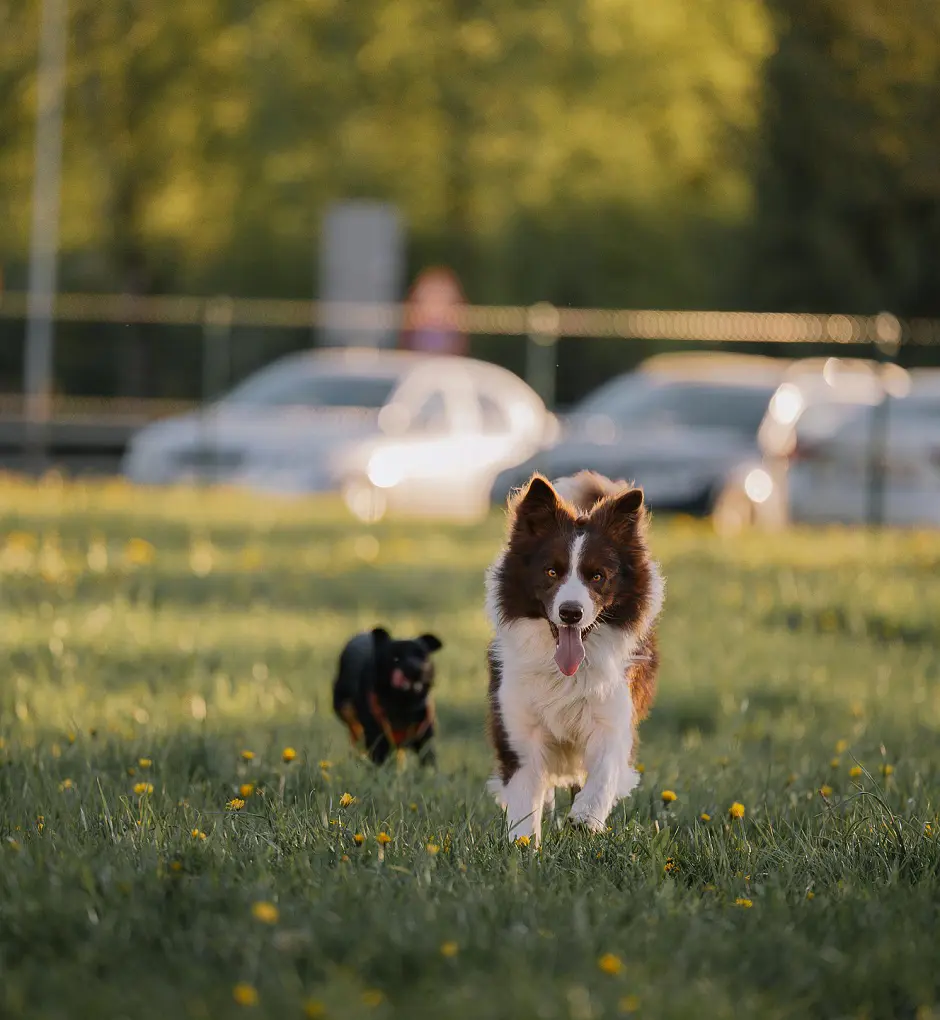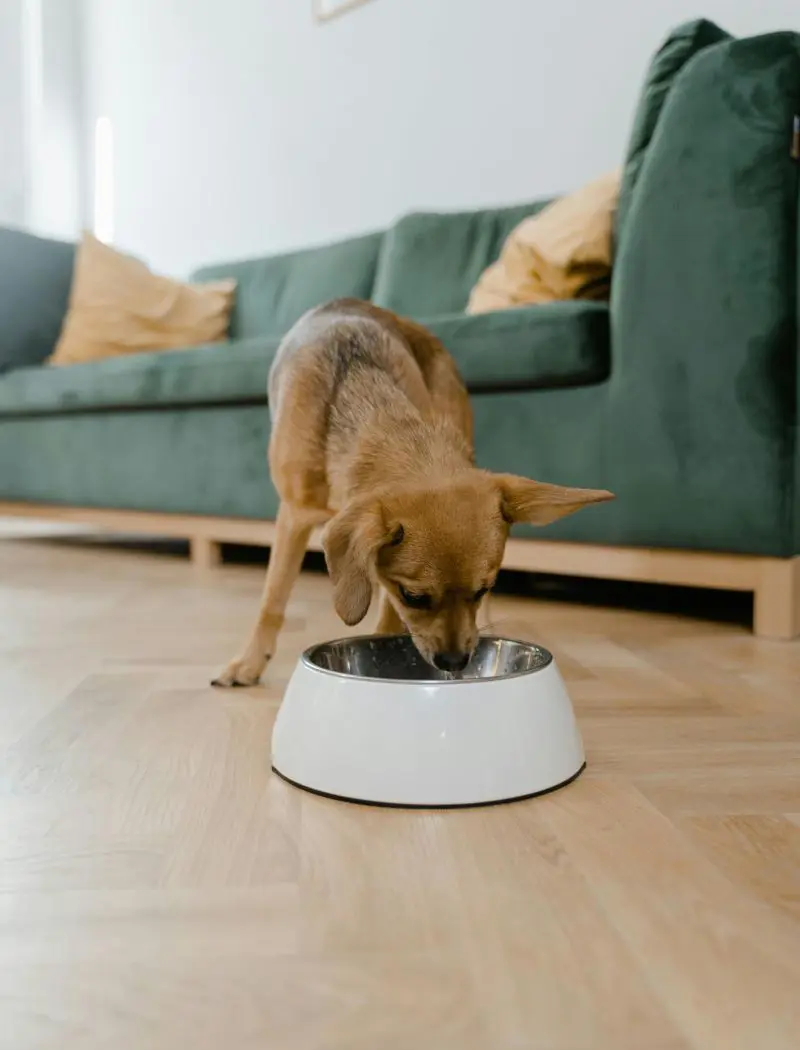Why Is My Dogs Stomach Making Noises?

Any pet parent with a dog in their family can relate to the horrors of the unwarranted strange sounds occasionally coming out of their pal’s stomach. Though occasional tummy rumblings are nothing to worry about, frequent or loud noises should be looked upon by a vet.
Knowing when to be concerned about these noises will not only save you a vet visit, but it might also save your pet’s life.
What Are Those Noises?

The noises produced by a dog’s stomach, which often are louder when the stomach is empty or digesting food, result from the movement of gas through the intestines.
Like a human’s digestive tract, a dog's system generates these familiar sounds when its muscular contractions push food, liquids, and gas through the gastrointestinal tract. Generally harmless, borborygmi simply indicates that your dog's digestive system is working properly.
Inversely, louder than usual noises, or those accompanied by other symptoms like nausea, vomiting, or even vertigo, may indicate something of serious concern, which could range from digestive disturbance to a careless meal or an underlying current condition.
Causes of Dog Stomach Noises

Belly noises in dogs are, generally, the symptoms of benign issues. Factors like dietary changes or swallowed air are mostly harmless, but not all causes can be ignored.
A dog owner must be well-prepared to deal with harsher signs like food intolerance and gastrointestinal issues. Though there may be many reasons why a dog's stomach will make noises, some common ones are:
1. Normal Digestion
Dogs, even with no gastrointestinal problems, may produce these sounds occasionally as a result of healthy digestion. Peristalsis - a pulsating shrinking and relaxing of the intestinal muscles - usually triggers the sound.
Peristalsis contributes to the complex process of nutrient absorption and the elimination of waste by grinding the food consumed by a dog. The process also facilitates the movement of gases and fluids through the intestines, resulting in the noise.
2. Hunger
Stomach noises are not only signs of a full belly, they can also emerge when the dog gets hungry. When the canine digestive system lacks food, the sounds generated by muscular contractions don’t get buffered.
In the fasted state, increased prominence of these sounds simply means audible growling or gurgling.
3. Swallowed Air

One of the more common causes of stomach noises in dogs is swallowing air. This could be due to gobbling your food down, rapid heavy panting exercised or brought about by anxiety, or even due to excited chomping on chew toys.
The swallowed air creates a pocket in the digestive system amidst fluids and gas usually created by digestive action. As muscular contractions move this mixture through the intestines, there may be sounds of rumbling or knocking from outside of the body.
4. Dietary Changes
Diet changes can impact your dog's intestinal noise. More so, sudden dietary changes - especially those including a new ingredient or higher fiber content than your dog is normally used to - have the tendency to temporarily disrupt the normal balance of gut flora.
When you suspect stomach noises related to diet, consider gradually changing your dog's food or consult with a veterinarian for the best course of diet for your dog.
5. Food Intolerance
The other well-known menace responsible for causing stomach noises in dogs is food intolerance. In this, the digestion system of the dog has a problem with the proper digestion of a food component.
Unlike food allergy, which is an immune reaction, food intolerance presents primarily with gastrointestinal signs. In instances of feeding a dog food to which they have an intolerance, the normal fermentation process of their gut is disrupted, and they produce too much gas.
6. Gastrointestinal Obstruction
It is usually elicited through an obstruction that may have occurred, due to the presence of some alien entity, probably a piece of bone or possibly a toy, inside the digestive tract. The existence of such obstruction will impede and obstruct the normal passage of gas and fluids, hence growling and pain in the stomach.
7. Stress and Anxiety
Increased levels of stress or anxiety in dogs are not only responsible for psychological trauma but can also trigger physical reactions. When the dog is extremely stressed, it may involuntarily slow down its bodily metabolism - lowering the blood flow.
8. Gastrointestinal Infections
Often referred to as gastroenteritis, these infections should subside after a few days. But, when the stomach noise immediately precedes symptoms like diarrhea, appetite loss, and vomiting, don’t take any chances and contact a professional.
Additionally, gastrointestinal infections hold a crucial role in the growth of unwanted viruses or parasites. The digestive system of the canine is vulnerable to these pathogens as they can impact the balance of healthy bacteria inside the body.
When to Be Concerned About Stomach Noises?

While stomach noises are common in dogs, there are situations where they warrant concern.
1. Frequent Noises
In some cases, the sound may not subside after a few days. This usually means that the dog is suffering from an undiagnosed health problem.
2. Followed by Vomiting
The triggering of stomach noises may be followed by the dog vomiting. When this happens to your dog, don’t spare any time to seek the help of a professional.
3. Diarrhea
In itself, diarrhea in dogs should be addressed swiftly as the loss of fluids can cause significant damage to its existence. When accompanied by stomach noises, diarrhea becomes a much more severe issue, even leading to occasional deaths.
4. Lethargy
Even though dogs are naturally active creatures, your dog may be getting tired too soon. Your dog’s involuntary lethargy could imply something sinister. Hence, don’t wait for your day off to take your pet to get checked by a vet.
5. Loss of Appetite
Is your dog avoiding the treats they enjoyed so much a couple of days before? This decrease in appetite is possibly linked to a health crisis not yet identified.
6. Abdominal Discomfort
Acute abdominal pain is not a rare phenomenon in dogs. But, when the pain turns chronic, along with frequent noises from the belly, it is possibly time for a visit to the vet.
7. Weight Loss
Unnatural weight loss, even when the dog is plenty of food, means that its body is unable to store vital nutrients. Cancer, diabetes, and kidney disease are some of the few reasons behind this unprovoked weight loss.
8. Presence of Foreign Objects
Noise can mean the obstruction of the stomach if you suspect that your dog may have ingested something out of the ordinary.
9. Dehydration
If your dog has symptoms like thirst or dry gums, together with stomach noises, this needs urgent attention from a veterinarian.
When To Visit The Vet?

In cases where the stomach noise doesn’t naturally stop, dog parents must seek the help of a vet.
Diarrhea that usually alleviates within 24 hours to 48 hours is pretty harmless. But, when the diarrhea doesn’t decrease ever after more than 48 hours, it can turn fatal to dogs due to the loss of bodily fluid at an unprecedented rate.
The most precautionary measure for pet owners is to always remain prepared for any indication of abdominal pain in dogs. The stomach noise, when accompanied by lethargy or vomiting, is a clear sign to call your veterinarian.
Tips to Help Your Dog

Here are some tips to help your dog if they are experiencing stomach noises:
1. Balanced Diet
Without healthy food, a dog might subside the belly noises temporarily but they are bound to return. Don’t make compromises on the quality of the dog food you’re buying; choose only high-quality ones even if they cost a little more than an average product.
Dog balanced diet should constitute foods that have all the right ingredients in the right amount. Feed a lean protein-based diet with healthy amounts of fats, carbohydrates, and other necessary ingredients.
2. Smaller But Frequent Meals
Dogs can’t store food on their bodies like camels. Giving a large meal 2 to 3 times a day and expecting them to survive on it is impractical and cruel to the animal.
Obesity is a serious issue that can develop in any dog with a mismanaged diet. Instead, try giving just enough food that the dog can digest in a few hours and periodically treat them with food throughout the day.
3. Proper Hydration
Every living being requires water for survival - dogs are no exception. Without the access to fresh water, they may develop digestive problems and immune system disorders.
Set up a bowl of water in an area commonly visited by your dog, at all times. Don’t forget to change it frequently to prevent the water from getting stagnant.
4. Regular Exercise
For healthy guts, dogs need to be exercised daily, even multiple times a day. Movement within the gastrointestinal tract sends the food down towards the colon for excretion.
Beyond the digestive benefits, dog exercises drastically reduce their stress. Exercise itself naturally elevates mood through natural substances in the body that can help alleviate anxiety and even create good feelings.
5. Avoid Scrap Food
Though not true for all, dog owners tend to feed the leftovers from their dinners or lunches to their poor pets. Extremely irresponsible and negligent, this action can take a huge toll on the dog health.
Surviving on table scraps is already hard enough as the dog is unable to fulfill the necessary nutrition. The issue becomes much more serious if the dog is allergic to certain human foods.
Preventive Measures for a Healthy Digestive System

By the time the stomach noises produced by dogs become noticeable to their owners, the disease or health condition may have already peaked and spread throughout the dog’s system. For every dog parents, it is crucial to deal with these problems before they turn into a threat to the dog’s life.
The first step, toward the solution, starts with good food and nourishment. Similarly, daily exercises are vital because they reduce the chances of constipation and bloating. They also promote normal bowel movements and enable the animal to have the right weight.
To discover possible digestive problems early, schedule routine check-ups with the vet. Don’t ignore the dog’s dental health either; maintain proper hygiene and occasionally brush their teeth.
Recent posts
Dogs
Why Is My Dog Panting? 18 Reasons For Breathing Fast
Dog owners, those in tune with their pets, can often notice a change in their companion’s behavior. When unwell or scared, some dogs hide while others seek solitude. Similarly, panting is a normal sign of tiredness or lethargy, but can also imp...
10 Reasons Behind Dogs Chewing And Licking Their Paws
Some of the most harmless behaviors dogs depict are chewing on their paws. But if this obsession catches onto your pup, well, that raises a couple of curious eyebrows. Your dog's tendency towards chewing and licking can affect general health and well...
18 Reasons Why Your Dog Is Not Eating
A skipped meal here or there is normal, but your dog consistently refusing food is the cause of concern. The reasons range from dietary issues to more serious health conditions and behavioral issues. The dog may be a picky eater or there might be som...
17 Causes Of Seizures In Dogs
Don't dismiss your pet dog's uncontrolled twitching movements as harmless shivering - you may be bearing witness to the classic signs of a seizure. These sudden and involuntary electrical disturbances can drastically impact a dog's health and even ch...
18 Reasons Why Your Dog Is Drooling So Much
While drooling in dogs is perfectly normal in certain situations, excessive or continued drooling may hint at a more serious issue that requires attention. Once you know the probable causes of this drooling in your dog, you can take some necessary st...
18 Reasons On Why Is My Dog Limping
A dog limping can be a cause of concern and cause stress to owners. It is not normal dog behavior and can be a sign of health problems in dogs. Understanding why your dog is limping is important to cure this problem. This article discusses 18 reasons...






